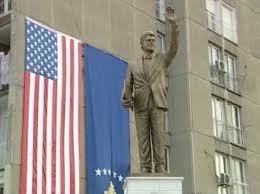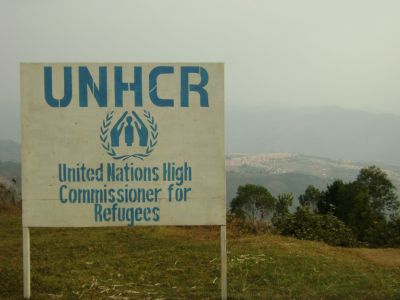
There is a statue of Bill Clinton in Kosovo.
And there is a George W. Bush St. in Tbilisi, Georgia.
We are political science professors and students who wish to understand processes of mass killings, ethnic cleansing, and genocide.
 There's something rather condescending about Westerners traveling to post-conflict areas devastated by genocide and giving a pep talk.
There's something rather condescending about Westerners traveling to post-conflict areas devastated by genocide and giving a pep talk.So the progress is encouraging, but it is far from complete. Yes, people can now go to work and children can go to school, but there are not enough good jobs. Hatreds have eased, but nationalism persists. And the promise of greater stability and opportunity represented by integration into Europe still remains out of reach.The take-home message: get over your nationalist differences and integrate so you too can join the party that is the EU! Get it together folks, get over those difficulties!
 The above title is taken from the last line of a recent New York Times article, and are the words of an unidentified senior U.N. official. The senior official is referring to the U.N.’s overdue investigation into the humanitarian crisis that has occurred in the Congo, formerly Zaire, in the ten years following the 1994 genocide in Rwanda—an investigation that yielded an official U.N. report just two days ago. Drafts of this report were released in late August, and they accused Congolese rebels and Tutsi-led forces from Rwanda of committing genocide against Hutu populations in U.N.-administered camps in the Congo. The final report offered less direct accusations regarding acts of genocide, as told in the latest Times article on the matter.
The above title is taken from the last line of a recent New York Times article, and are the words of an unidentified senior U.N. official. The senior official is referring to the U.N.’s overdue investigation into the humanitarian crisis that has occurred in the Congo, formerly Zaire, in the ten years following the 1994 genocide in Rwanda—an investigation that yielded an official U.N. report just two days ago. Drafts of this report were released in late August, and they accused Congolese rebels and Tutsi-led forces from Rwanda of committing genocide against Hutu populations in U.N.-administered camps in the Congo. The final report offered less direct accusations regarding acts of genocide, as told in the latest Times article on the matter.